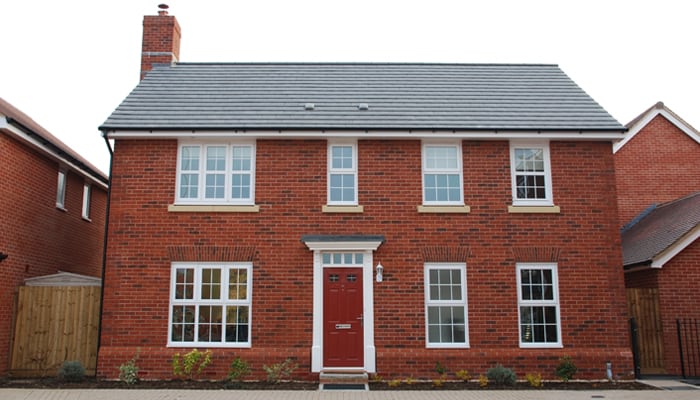To provide extra protection for tenants living in shared houses; the government introduced HMO licences, as part of the Housing Act 2004, to ensure that properties weren’t overcrowded and that the relevant fire safety legislation was followed.
The new laws meant landlords needed licences for houses in multiple occupation from 2006 onwards. Some licences are compulsory, while local authorities can also require additional licencing schemes for rental properties outside of the mandatory category.
If you’re a landlord of HMOs, the licence is the most important part of your business. Without it, you’re breaking the law and will suffer the consequences, including sizable fines.

© Luis Santos / Shutterstock.com
Landlord’s responsibilities
The landlord of HMO properties has various responsibilities, as outlined in the licence. You must have a valid licence if you are renting out a large HMO.
The law defines a large HMO as one that is rented to five or more tenants who form more than one household, with some or all the tenants sharing the bathroom, toilet, or kitchen facilities and at least one tenant paying rent.
Even if your property is small and rented to fewer people, you might still need an HMO licence, depending on any additional regulations imposed by your local council. Always check with the local authority to ensure you’re not operating outside your district’s laws.
The HMO licence is valid for five years. A landlord must renew the licence before it runs out. A separate licence is needed for each HMO, as one licence doesn’t cover all of them.
To meet the HMO licence conditions, the property must be suitable for the number of residents, depending on its size and facilities.
The property’s manager, whether that’s the landlord or an agent, must be “fit and proper” to assume the role. They must not have a criminal record, nor should they have breached any landlord laws or codes of practice.
A new gas safety certificate should be submitted to the council annually, following a check by a professional tradesman. Smoke alarms must be installed and maintained, and safety certificates must be provided for all electrical appliances upon request.
At a local level, the council may attach additional conditions to the HMO licence, such as improving the facilities if they feel this is necessary.
How much is the HMO licence?
The fee for an HMO licence varies across the country but it tends to be more expensive in London and the south of England.
Each local authority imposes its own fee, so the landlord needs to contact the council directly to inquire: Barking and Dagenham Borough Council’s fee is £956, while in Barnsley it will cost around £505, according to research by HMO Hub.
If you’re a landlord in London and you own several HMO properties, it can be an expensive business getting your licence. However, it is not as expensive as the fine you will incur if you don’t get a licence.
Penalty for non-compliance
The penalties for non-compliance are severe. Letting an HMO without a licence can result in unlimited fines. These are often in the range of £10,000 to £40,000, or a civil penalty as an alternative to prosecution.
The civil penalty was introduced in 2016 through the Housing and Planning Act and saw the launch of fixed penalty notices of up to £30,000. This can be issued instead of holding costly criminal legal proceedings in court.
Financial penalties apply to any individual or company that has control of, or manages, the HMO property. In some cases, landlords who operate an HMO without the relevant licence might have to repay rent through a Rent Repayment Order – this can mean repaying the rent paid by tenants, or the rent paid by local authorities in the form of housing benefit, for a period of up to 12 months.
If a landlord has a licence but fails to comply with any conditions imposed by the licence, this is also an offence and could lead to a fine of up to £5,000 per offence, or a civil penalty.
An errant landlord would be prosecuted in the Magistrates’ Court. This is why the HMO licence is extremely important!
Furnishing an HMO
As a landlord, you need to provide suitable furniture for your furnished HMO: it should be of a suitable quality, durable and perhaps most importantly, it must meet the relevant safety requirements.
With the emphasis being on saving money, especially if you have already spent a fortune on HMO Licences, many landlords choose the services of a professional HMO furniture pack provider.
When you obtain HMO furniture from Furniture Pack Solutions, you are assured of competitive prices, uncompromised quality and solutions that comply with all the relevant safety requirements.
